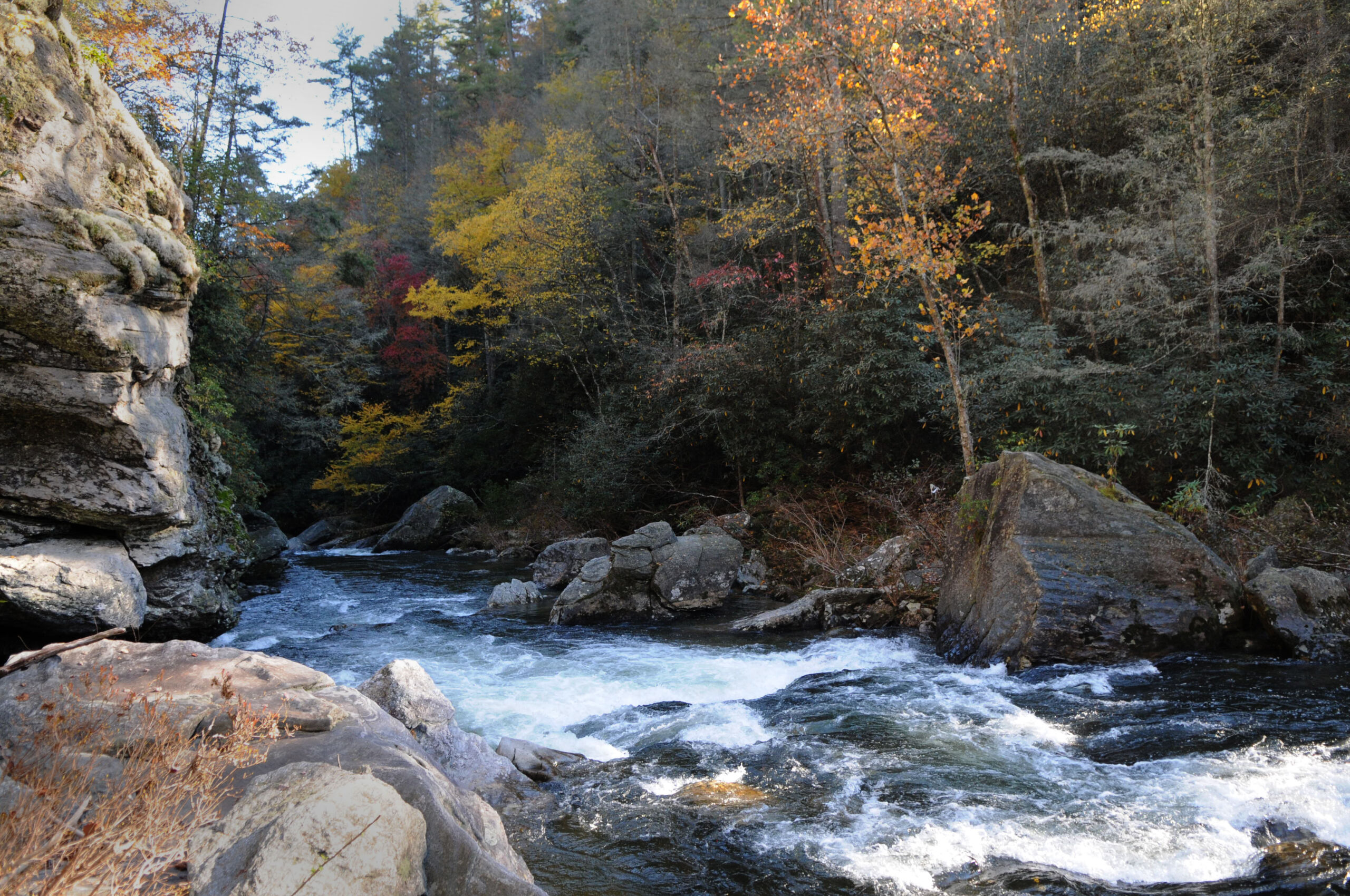
Seventy percent of the Chattooga River watershed is national forest land managed by the US Forest Service under the jurisdictions of the Andrew Pickens Ranger District in Oconee County, SC, Chattooga River Ranger District in Rabun County, GA, and the Nantahala Ranger District in Jackson and Macon Counties, NC.
The Forest Service is in the US Department of Agriculture, and the agency’s forestry practices are largely geared towards producing commercial tree crops, at the expense of preserving and restoring biological diversity. The Chattooga Conservancy engages in monitoring and oversight of Forest Service proposals/projects in the Chattooga River watershed and works collaboratively with the agency when possible. Currently, this includes:
Work opposing this very controversial project in the Nantahala Ranger District has been ongoing for several years. The project targets rare old-growth trees and stands over 100 years old, and involves cutting 317 acres of timber, repeatedly burning 2,000+ acres, and widespread application of herbicide (including glyphosate) to kill native forest species in favor of “crop trees.” The current focus is preserving two stands of timber on Brushy Mountain adjacent to the Ellicott Rock Wilderness Area and the Chattooga River at Bull Pen. One stand is old growth, and the other area has newly documented populations of the imperiled Green Salamander.


The new forest plan will govern national forest management in the Chattooga headwaters in NC for the next 20-30 years. We advocated for greater protection of unique resources through designating Terrapin Mountain, Overflow Wilderness Study Area, and the Ellicott Rock West Extension as potential wilderness areas, and also endorsed wild & scenic river eligibility for Overflow Creek and its East & West Forks, the Whitewater River, and the Thompson River. The final environmental impact statement (FEIS) for the new forest plan was released in Jan. 2022, and is deeply flawed.
FOOTHILLS LANDSCAPE INITIATIVE (GA)
This massive project encompasses 143,419 acres of the Chattahoochee National Forest, including a large portion of the Chattooga River watershed in GA. The project proposes up to 55,000 acres of commercial timber harvest, 90,000 acres of non-commercial harvest, herbicides over 60,000 acres, and forest thinning just about everywhere. The final environmental assessment and decision notice for this project has been released, and we are engaged in the agency’s “objection” process, with representation by the Southern Environmental Law Center (SELC).
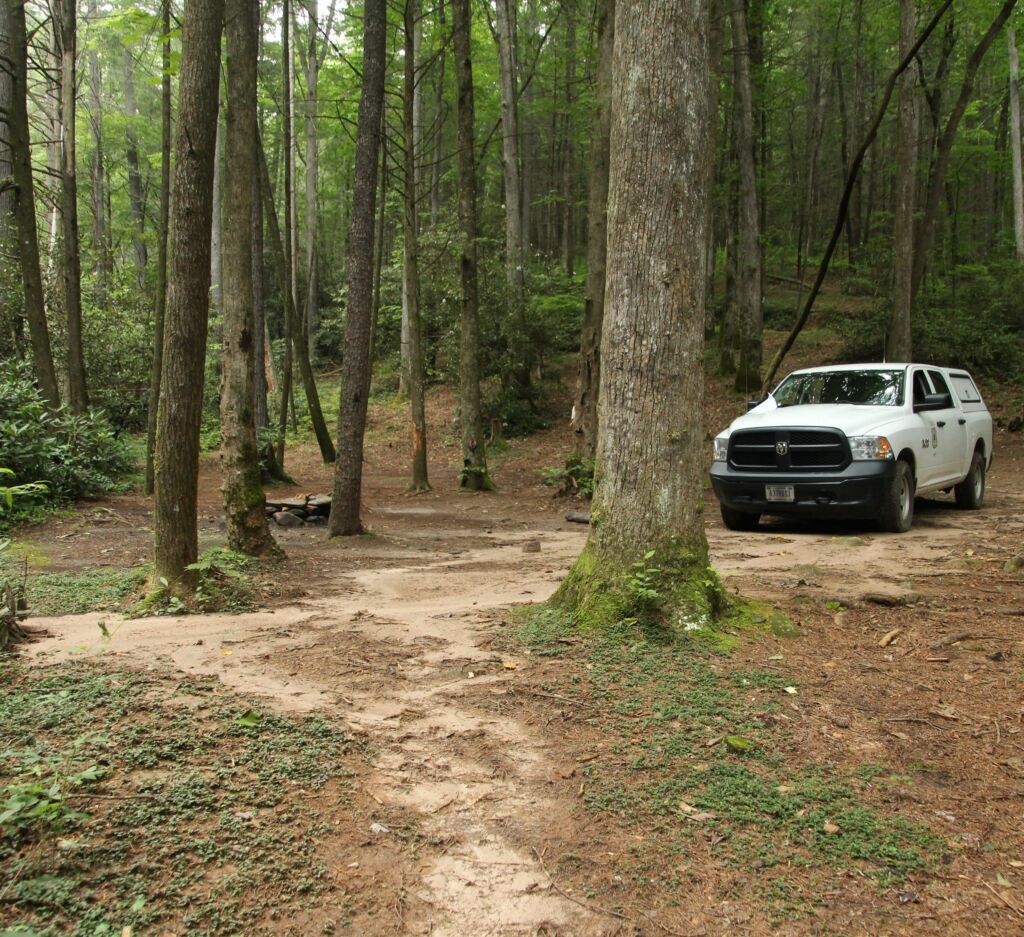
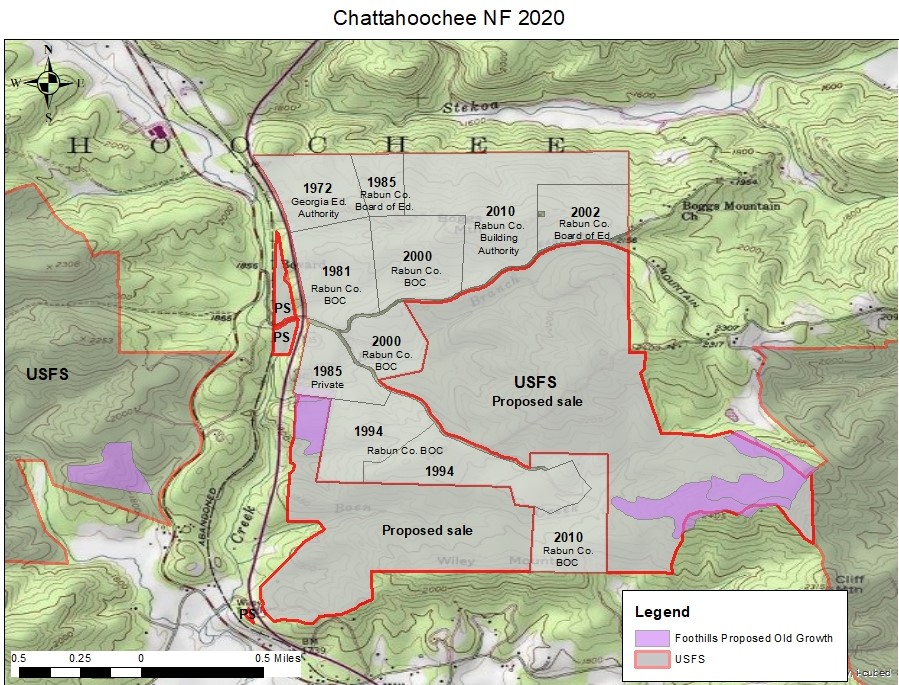
During the previous administration, GA Members of Congress in alliance with Secretary of Agriculture Sonny Perdue inserted language into the 2018 Farm Bill that authorized the sale of 3,841 acres of national forest land in the Chattahoochee-Oconee National Forest that included 8 tracts totaling 1,246 acres in Rabun County. Backed by overwhelming citizen support, we opposed selling these public lands and are continuing oversight of this ill-advised initiative. “Keep public lands in public hands!”
We are working to restore 29 acres of native river cane habitat along the Chattooga River near the Highway 28 bridge in cooperation with the Eastern Band of the Cherokee Indians (EBCI), Revitalization of Cherokee Artisan Resources (RTCAR), and the Andrew Pickens Ranger District. The project’s goal is to establish a sizeable canebrake, which is one of the most endangered ecosystems in the Southeast.
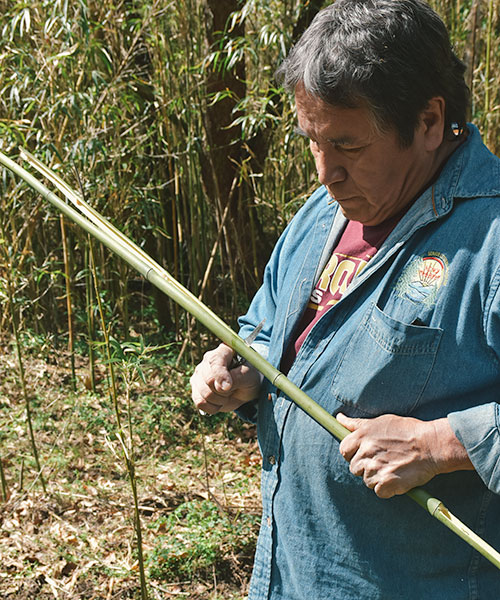
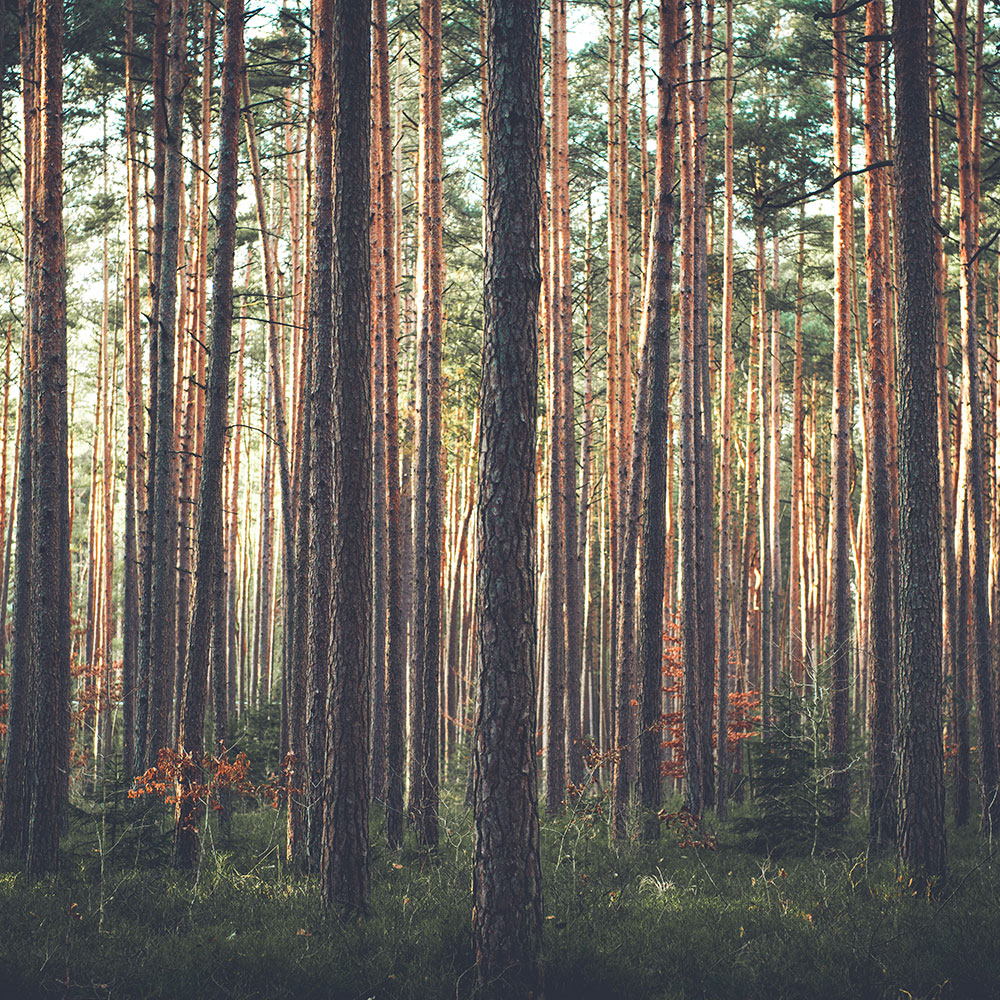
This ongoing project involves cutting 6,089 acres of non-native loblolly stands, burning 4,369 acres, applying herbicides on at least 5,542 acres, 57 miles of road maintenance/reconstruction, 37 miles of temporary roads, and 8 miles of bulldozer fire lines. We are monitoring this large project and documenting and publicizing its negative environmental impacts.
The Andrew Pickens Ranger District recently approved harvesting 66 stands of Eastern white pine on approximately 2,148 acres, followed by herbicides, prescribed burning, chipping, and/or planting more pine trees. Our input precipitated some changes to the initial project proposal, and monitoring and oversight work will continue.

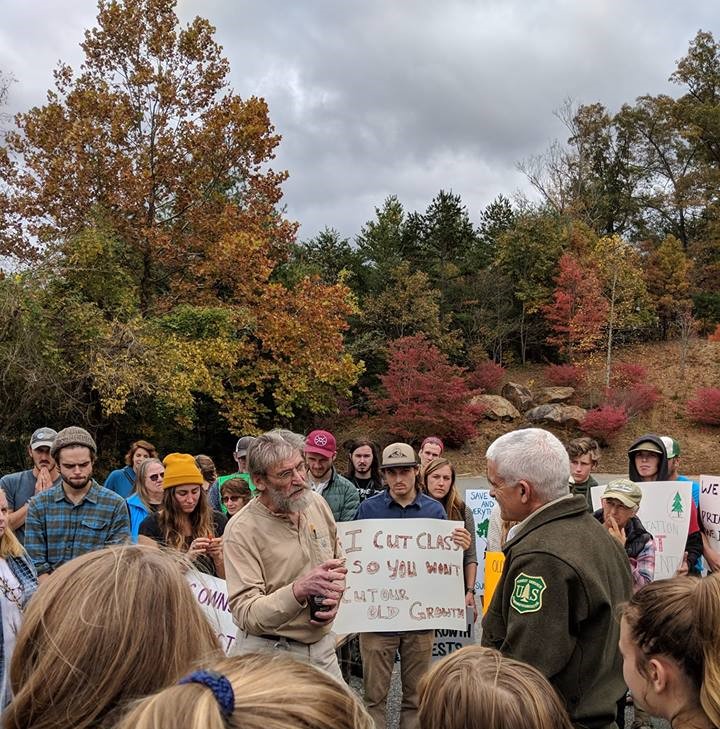
We are participating in a pending lawsuit for challenging the Trump Administration’s changes to fundamental tenets of the National Environmental Policy Act (NEPA), one of our nation’s bedrock environmental protection laws, in collaboration with numerous NGOs, with representation by SELC.

The High Hampton Resort in Cashiers has been undergoing major redevelopment since 2019. The massive land-disturbing activities have caused severe sediment impacts to Fowler Creek, a classified wild trout stream and headwater tributary to the Chattooga River. We are engaged in ongoing oversight of High Hampton with assistance from pro bono legal counsel.
We are on the steering committee of an ad-hoc citizens’ group known as Develop Cashiers Responsibly (DCR) that formed in Nov. 2020 to challenge approval of an ill-conceived mega-development at The Crossroads in the center of town, which was ultimately defeated. We remain very engaged in DCR as the group works to promulgate zoning and environmental protection provisions for Cashiers that are critical to helping preserve the Chattooga’s water quality.

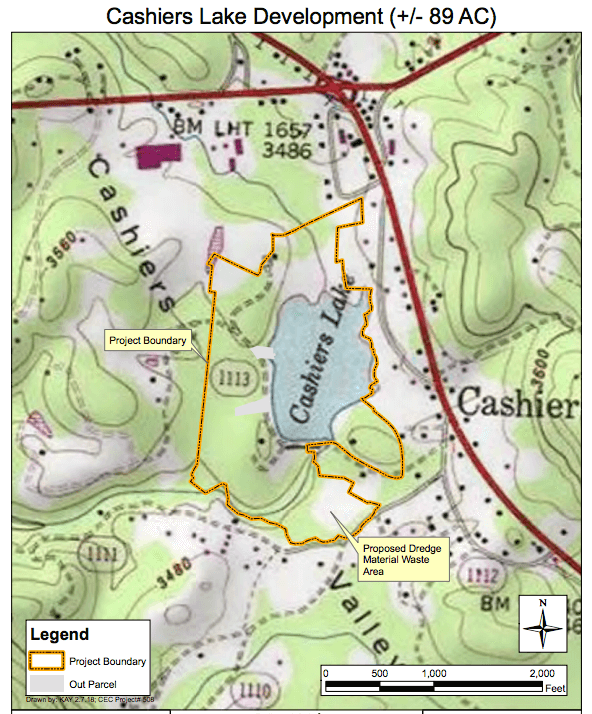
Developers have won approval to dredge wetlands and other portions of Cashiers Lake prior to building a high-density residential development. Cashiers Lake feeds the Chattooga headwaters, which are classified as “Outstanding Resource Waters,” a rare classification in the State of NC. We’re monitoring this project.
We’re managing a GA Department of Natural Resources (GADNR) 319(h) grant that features implementing a green infrastructure demonstration project at the NE GA Food Bank property on Hwy. 441. The large parking lot covers a portion of Stekoa Creek’s 50-foot stream buffer zone; this portion will be replaced with bioretention basins to mitigate stormwater runoff into the creek. Stekoa Creek is the most polluted tributary to the Chattooga.
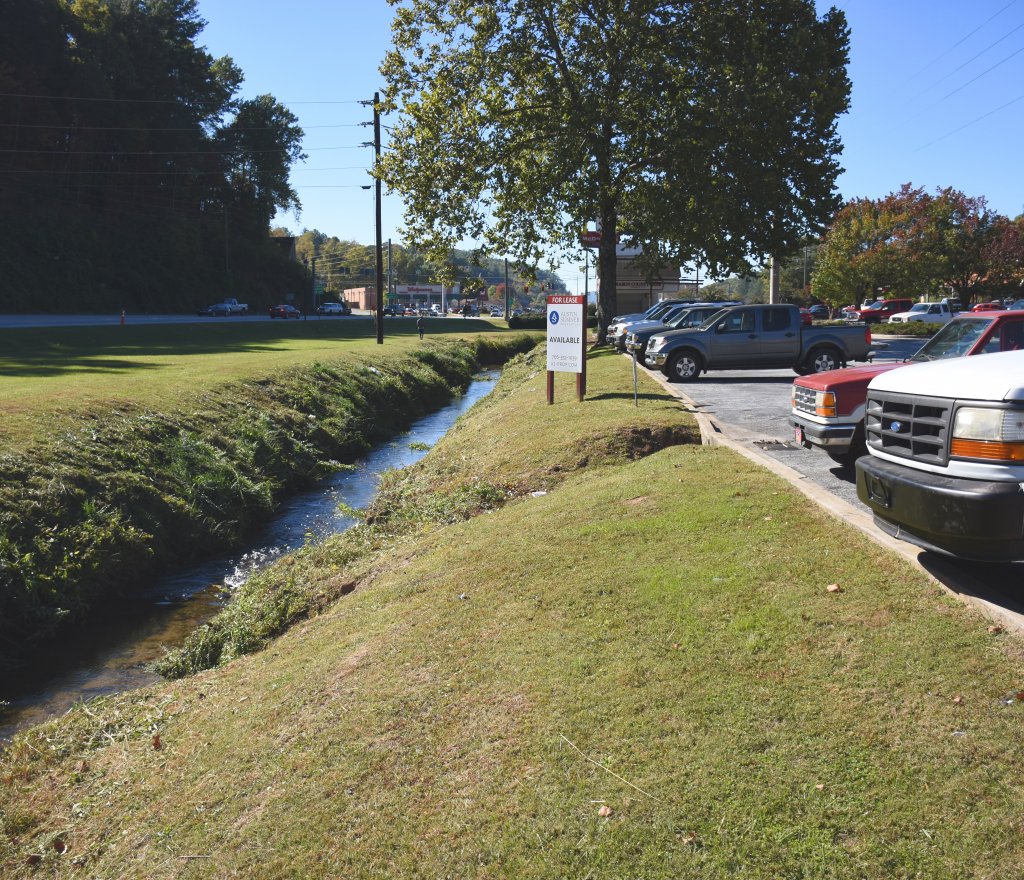
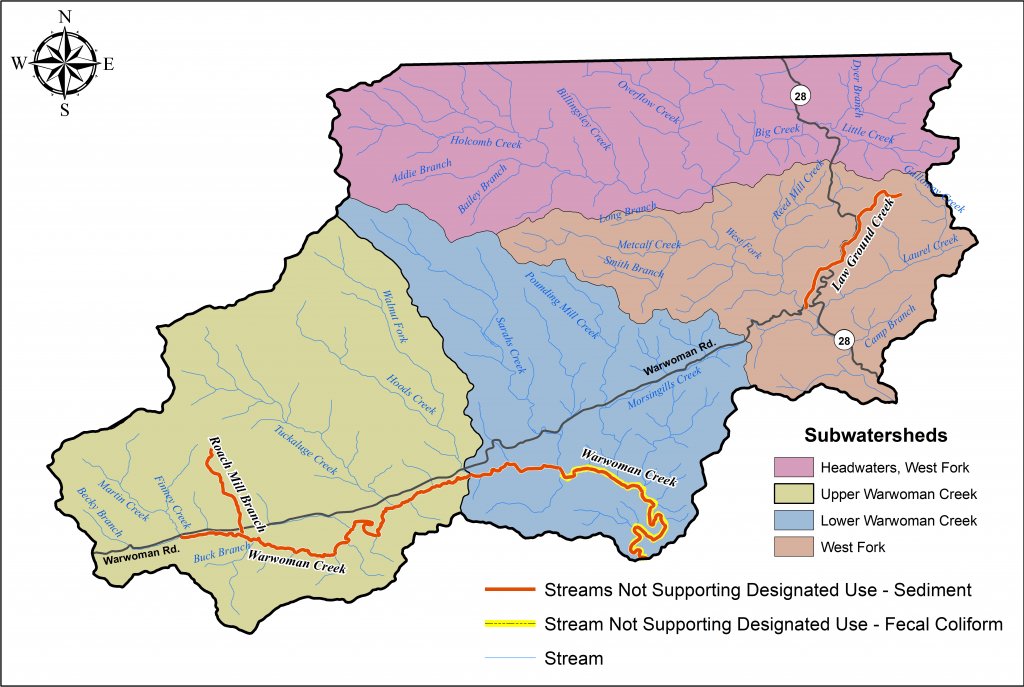
We’re managing another GADNR grant aimed at reducing sources of pollution into Warwoman Creek on national forest lands in the Earl’s Ford Road area. Warwoman Creek is a polluted tributary to the Chattooga.
The Georgia Department of Transportation has imminent plans to widen Highway 441 North, which will impact 3 linear miles of Stekoa Creek. Monitoring of this project is ongoing.
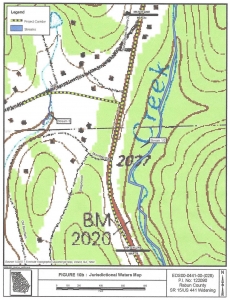

Chattooga Conservancy created and maintains the grounds of the 4-acre Stekoa Creek Park, which we donated to the City of Clayton. We restored this formerly degraded tract and built the park to demonstrate how abused land along a polluted stream could be restored as green space and as an asset to the community.
We are intervening in GA Power’s recent license amendment application to the Federal Energy Regulatory Commission (FERC) to upgrade turbines at Tugalo Dam, and have proposed decommissioning and removing the dam to restore 6 miles of Chattooga & Tallulah Rivers, and hundreds of acres of surrounding riverine habitat. We are partnering with SELC, American Rivers, American Whitewater, GA Canoeing Assoc., Upstate Forever and Naturaland Trust in this initiative.

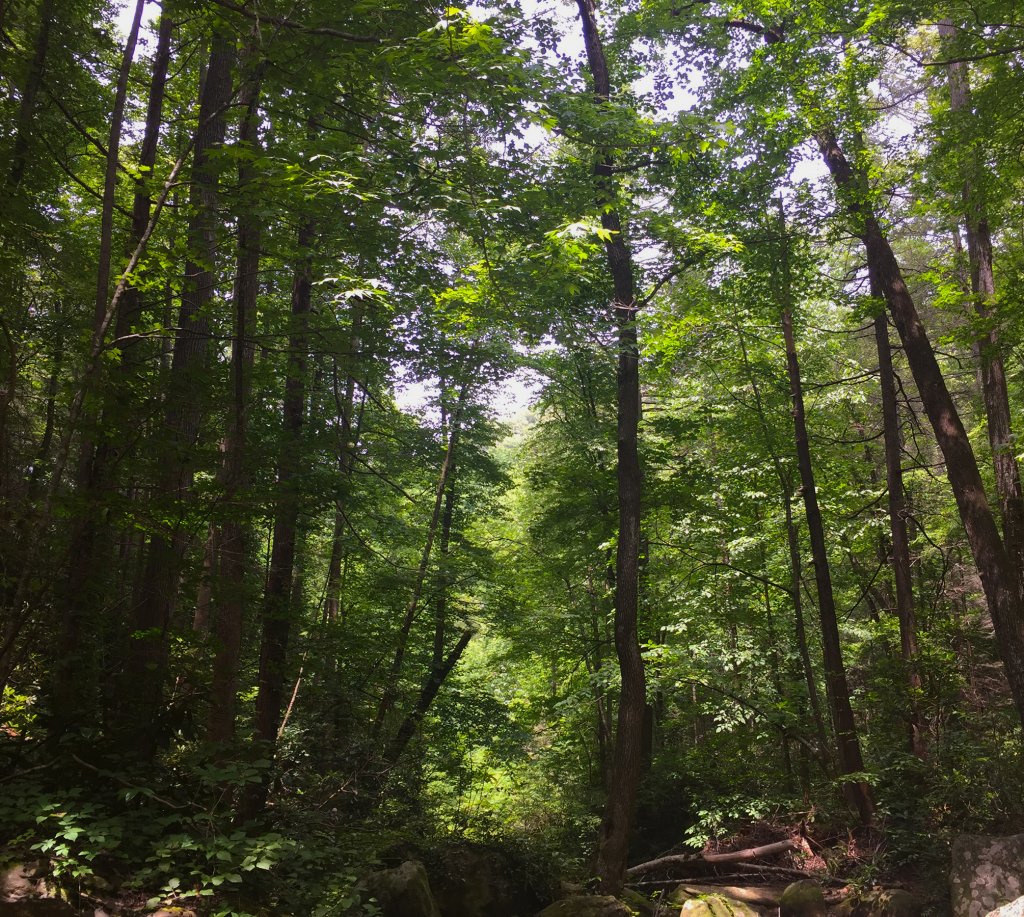
In 2020, a 56-acre tract of undeveloped forest land in Rabun County was donated to the Chattooga Conservancy. We’re working to improve road access into the property, with a longer-term goal of utilizing this tract for environmental education initiatives.
We initiate and lead public work days for eradicating non-native invasive species (kudzu, privet, etc.) in the Chattooga River corridor, and trash pick-up events at areas in or near the wild & scenic river corridor. We also use Adopt-A-Stream methods to collect and test water samples at numerous streams in the watershed for excessive levels of sediment and E. coli pollution.
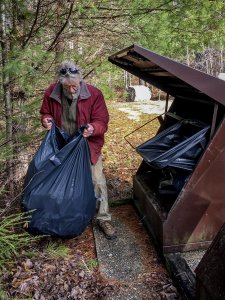
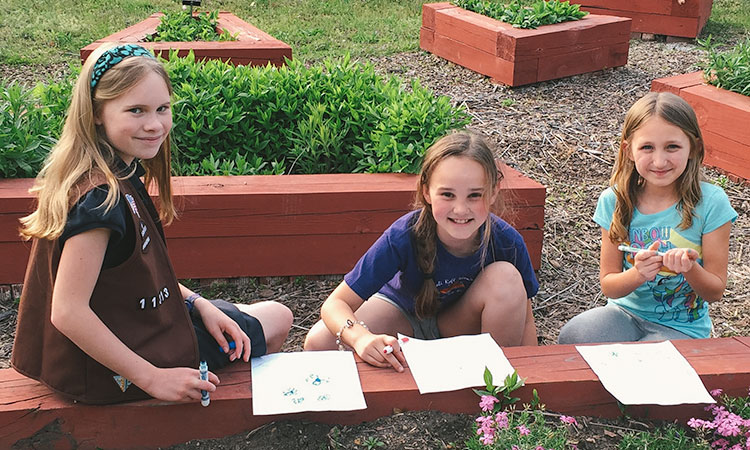
We host events and presentations, and maintain website and social media platforms for public outreach and education. We also compose and publish a digital newsletter called Chattooga Currents, and a periodic magazine named Chattooga Quarterly.
Chattooga Conservancy is an accredited land trust as recognized by the Land Trust Alliance. We collaborate with private landowners seeking to donate land or place conservation easements on properties possessing significant conservation values.
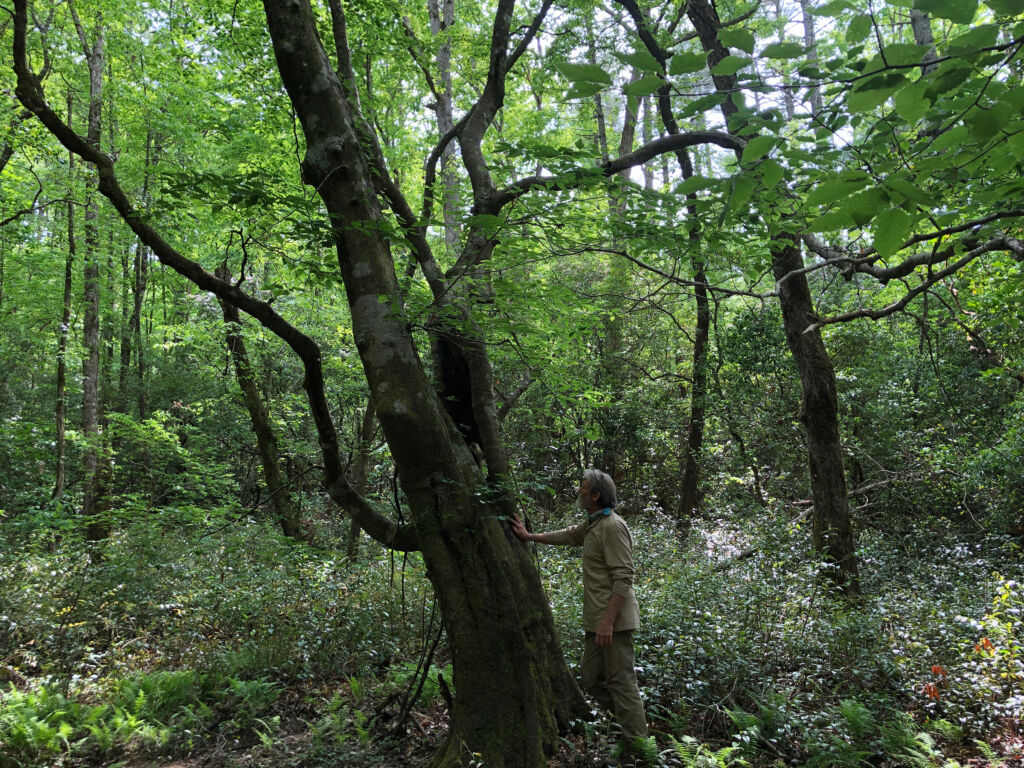
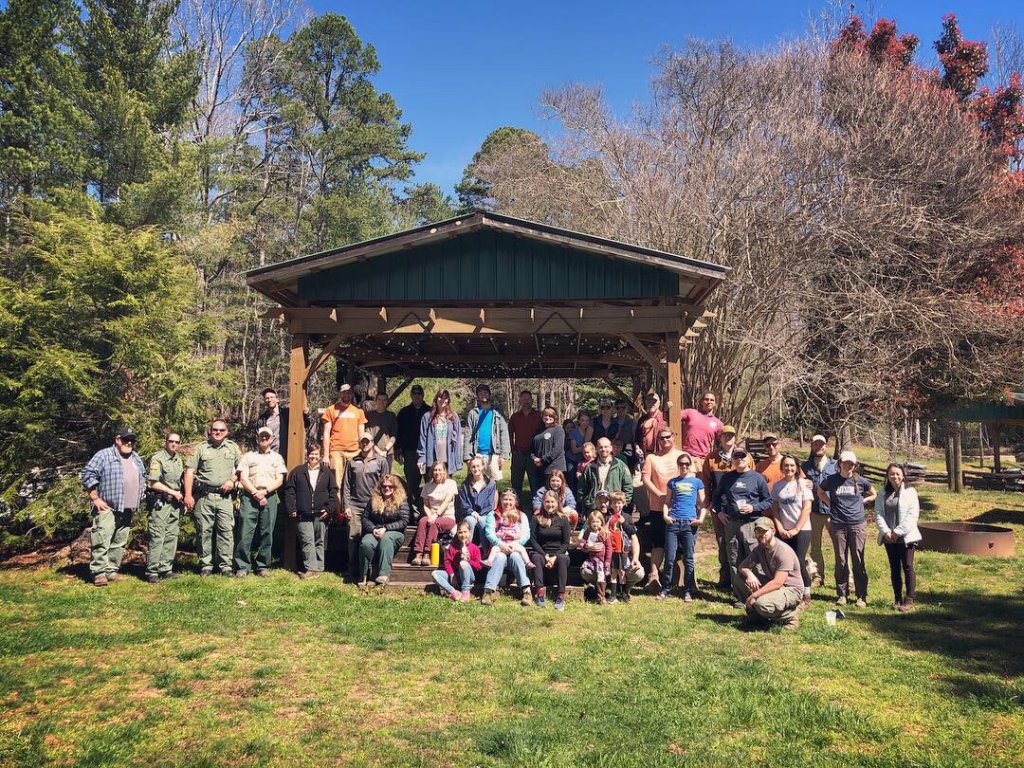
Chattooga Conservancy works with many NGOs in the southeast region to help advance program goals, including SELC, Nantahala-Pisgah Forest Partnership, Land Trust Alliance and more.

